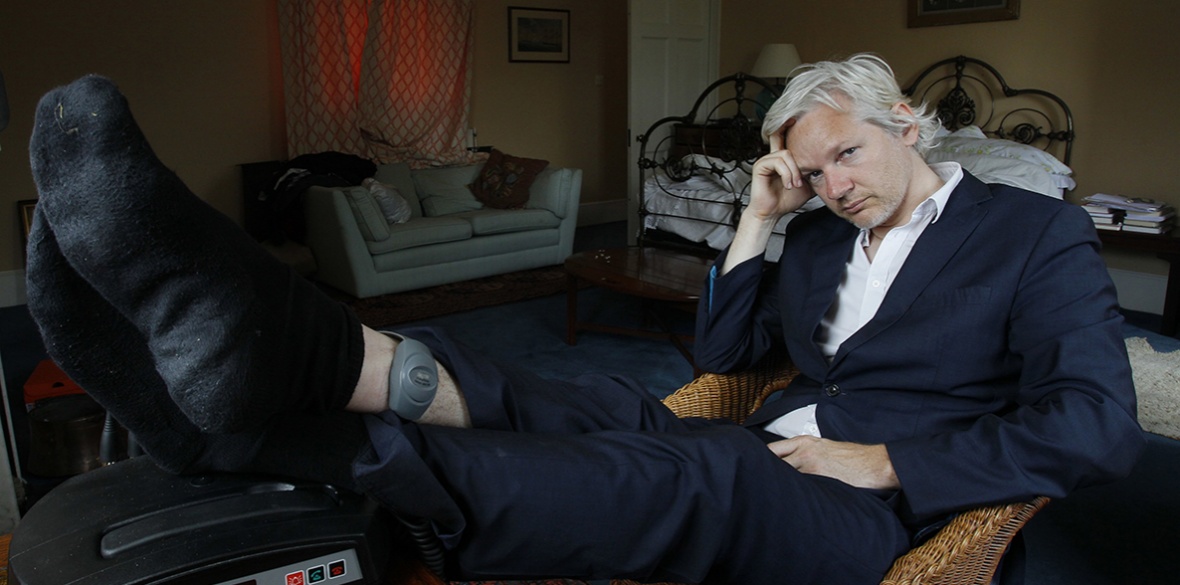IF THE High Court rules against Julian Assange this week, the pretence that Britain is a free country will no longer stand.
The brutal mistreatment of the century’s outstanding journalist already leaves it looking threadbare.
British politicians affect deep offence over the Russian state’s hounding of Alexei Navalny, who after years of incarceration under increasingly harsh conditions died at 47 last week.
Not one of them should be taken at their word unless they express similar concern for Assange. The WikiLeaks founder has not been a free man for 12 years. Since he was jailed in Belmarsh in 2019, the UN special rapporteur on torture and ill treatment Nils Melzer has concluded his abusive handling constitutes psychological torture.
Just to recount the course of the case is to unveil a conspiracy against Assange, a commitment on the part of British authorities to ensure he does not go free whatever happens.
The rape charges on which he was originally arrested have long since been withdrawn (and evidence has been uncovered that Swedish prosecutors even then were operating under British pressure — from the then director of public prosecutions, a certain Keir Starmer).
A key part of the US case against him — that he had asked Sigurdur Ingi Thordarson to hack computers for classified information — collapsed when Thordarson admitted he lied under oath.
Since then we have discovered that the CIA spied on his lawyers and discussed abducting or even assassinating him on British soil. As solidarity campaigner John Rees notes, any ordinary case would have been thrown out after any one of these abuses came to light.
But this is no ordinary case. It is a political persecution. That’s clear too from the silence from British government — and opposition — on these outrageous insults to our sovereignty by the United States.
So it’s worth reflecting on what’s at stake politically. As the New York Times has pointed out, this is the first use of the Espionage Act in the United States to prosecute someone for publishing information.
Not leaking classified material from a position of employment in the security state, but publishing information passed to him. This makes it straightforwardly an attempt to criminalise journalism.
The published information was clearly in the public interest: WikiLeaks exposed the enormous civilian death tolls from the Afghan and Iraq wars, as well as dramatic footage of war crimes by US forces — most notoriously the “collateral murder” video in which US helicopter pilots laugh as they gun down Iraqi civilians.
That is what the US state wanted hidden. Small wonder. The moral superiority claimed by Western governments was exposed by WikiLeaks as a sham. Given our political masters — as Grant Shapps recently made clear — are committed to war, war and more war, access to uncomfortable truths that reduce popular support for those wars must be cut off.
That’s why they have to see Assange shipped off to the United States, where he could face 175 years behind bars. Assange is not a US citizen, his journalistic activities were never carried out there, but this is an act of empire: Washington’s warning to journalists everywhere, that if they reveal its crimes they will be made to pay.
Across the West dissenting voices are being silenced. Online censorship and manipulative algorithms hide the narratives our state and corporate elite don’t want us to hear; awkward accounts that slip through the net are howled down as fake news or enemy disinformation.
The prosecution of Julian Assange is the heart of the whole repressive project. It is intended as a warning.
If he is extradited to the US, British justice will be shamed in the eyes of the world, but that is nothing new.
More seriously it will encourage war criminals like those currently rampaging through Gaza that their crimes will not be documented, and make journalists and media outlets everywhere more frightened of exposing them.











